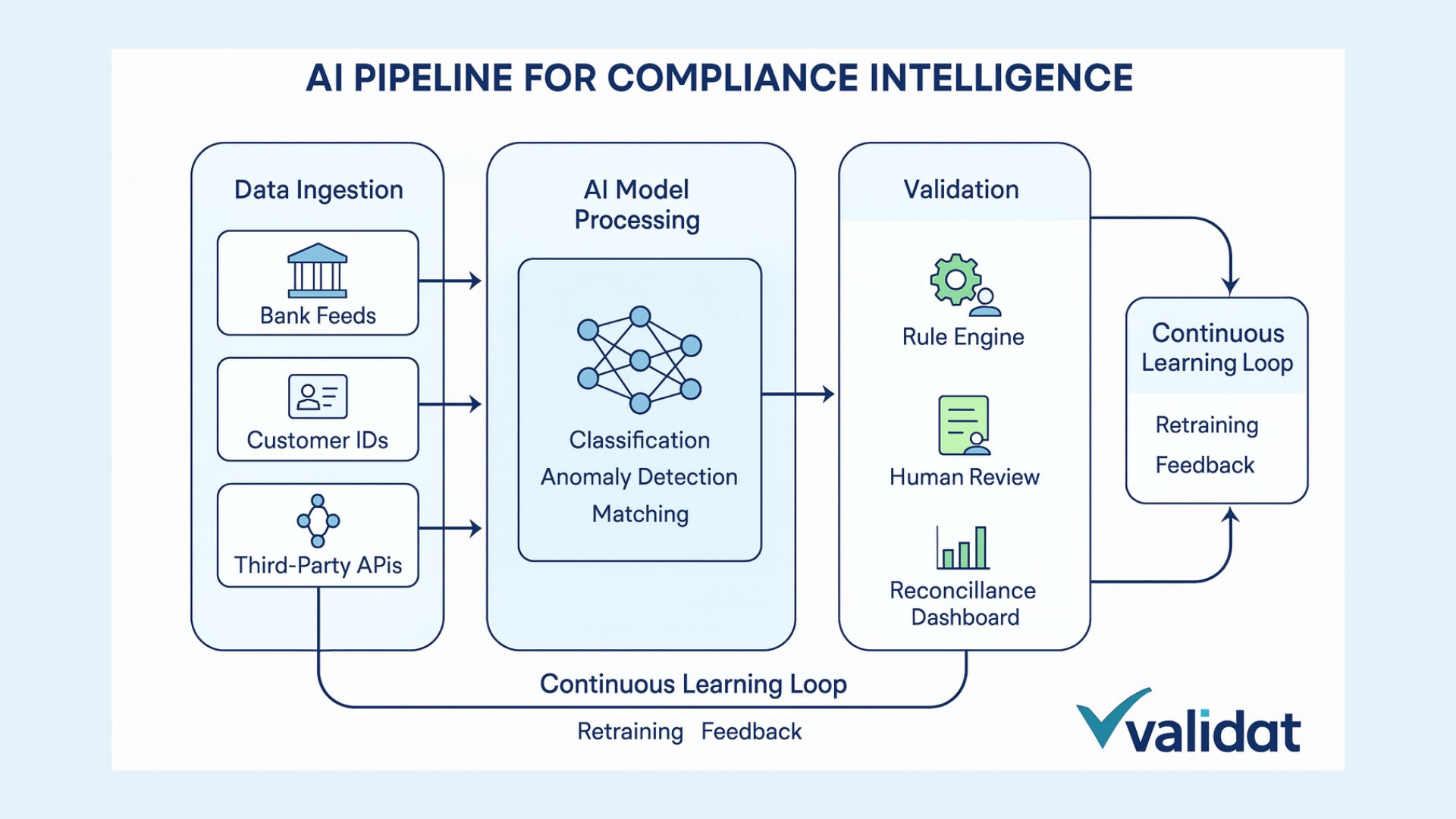KYC Automation and AI-Driven Reconciliation: Redefining Banking Efficiency

Modern banking is undergoing a deep transformation powered by artificial intelligence. Among the most promising applications are KYC automation and AI-driven reconciliation, two areas reshaping compliance accuracy, operational costs, and customer onboarding.
Financial institutions using Validat’s fintech infrastructure are gaining measurable improvements in compliance oversight and reconciliation speed, while freeing teams from manual data checks that once slowed growth.
Interestingly, industries far beyond banking are also adopting AI-based precision systems — for example, Viva Wellness Drip applies similar data-driven intelligence to personalise wellness treatments, showing how automation and analytics can drive transformation across sectors.
Why KYC Automation is a Strategic Necessity
Know Your Customer (KYC) processes are no longer optional add-ons; they’re critical to regulatory compliance and fraud prevention. Yet, traditional KYC relies heavily on manual verification, leading to:
- Time-intensive document validation
- Higher operational costs
- Increased exposure to human error
KYC automation powered by Validat integrates secure data pipelines that verify customer identity in real time, cross-reference regulatory databases, and flag potential anomalies instantly.
Learn more about our Customer Onboarding solutions and how automation simplifies compliance at scale.
How AI-Driven Reconciliation Enhances Accuracy
Bank reconciliation remains one of the most error-prone back-office tasks. With multiple data sources, formats, and transaction types, traditional reconciliation is prone to mismatches and costly delays.
By using AI-driven reconciliation, banks can:
- Detect and resolve mismatches in real time
- Reduce manual interventions
- Improve audit readiness and reporting accuracy
Validat’s Banking Reconciliation platform uses machine learning models that continuously learn from transaction histories, improving pattern recognition and anomaly detection over time.
Inside the AI Pipeline for Compliance Intelligence
The AI compliance pipeline works through several interconnected stages designed to ensure precision, scalability, and continuous improvement:
- Data Ingestion: Collects information from bank feeds, customer IDs, and third-party APIs.
- AI Model Processing: Performs classification, anomaly detection, and data matching.
- Validation Layer: Uses rule engines and human review to confirm compliance accuracy.
- Reconciliation Output: Generates reports, audit trails, and dashboard summaries.
- Continuous Learning: Feedback loops retrain the AI models for evolving regulations.
This pipeline allows banks to maintain compliance accuracy even as regulatory frameworks evolve.
Benefits for Banking and Fintech Teams
- Regulatory Confidence – Automated tracking and audit-ready documentation
- Speed and Efficiency – Real-time verification cuts onboarding time by up to 60%
- Reduced Risk – Predictive insights flag compliance gaps early
- Scalable Infrastructure – Validat’s modular API architecture adapts to growing transaction volumes
By combining AI-driven reconciliation with KYC automation, banks can achieve a unified compliance layer that integrates across legacy and cloud systems.
The Future of AI in Banking Compliance
The convergence of AI, data governance, and fintech infrastructure is ushering in a new era of proactive compliance. Institutions that adopt AI-based reconciliation and onboarding today are positioning themselves for the next regulatory cycle — one driven by speed, transparency, and trust.
FAQ Section
What is KYC automation in banking?
KYC automation leverages artificial intelligence and data verification APIs to automatically validate customer identity, monitor compliance, and flag anomalies. It reduces manual paperwork and ensures faster onboarding.
How does AI improve reconciliation accuracy?
AI models compare thousands of financial records in seconds, identifying inconsistencies or duplicate entries that human teams might overlook. This improves data integrity and audit readiness.
Is AI-driven reconciliation secure for financial institutions?
Yes. Solutions like Validat use encrypted data pipelines, access control layers, and secure APIs to ensure compliance with banking-grade security standards.
How can Validat help implement AI-powered KYC and reconciliation?
Validat provides fintech infrastructure modules that integrate easily into existing banking systems, helping automate KYC verification and reconciliation with minimal disruption.
Latest Posts

Fraud Risks Fintech Companies Face Daily and How to Prevent Them


